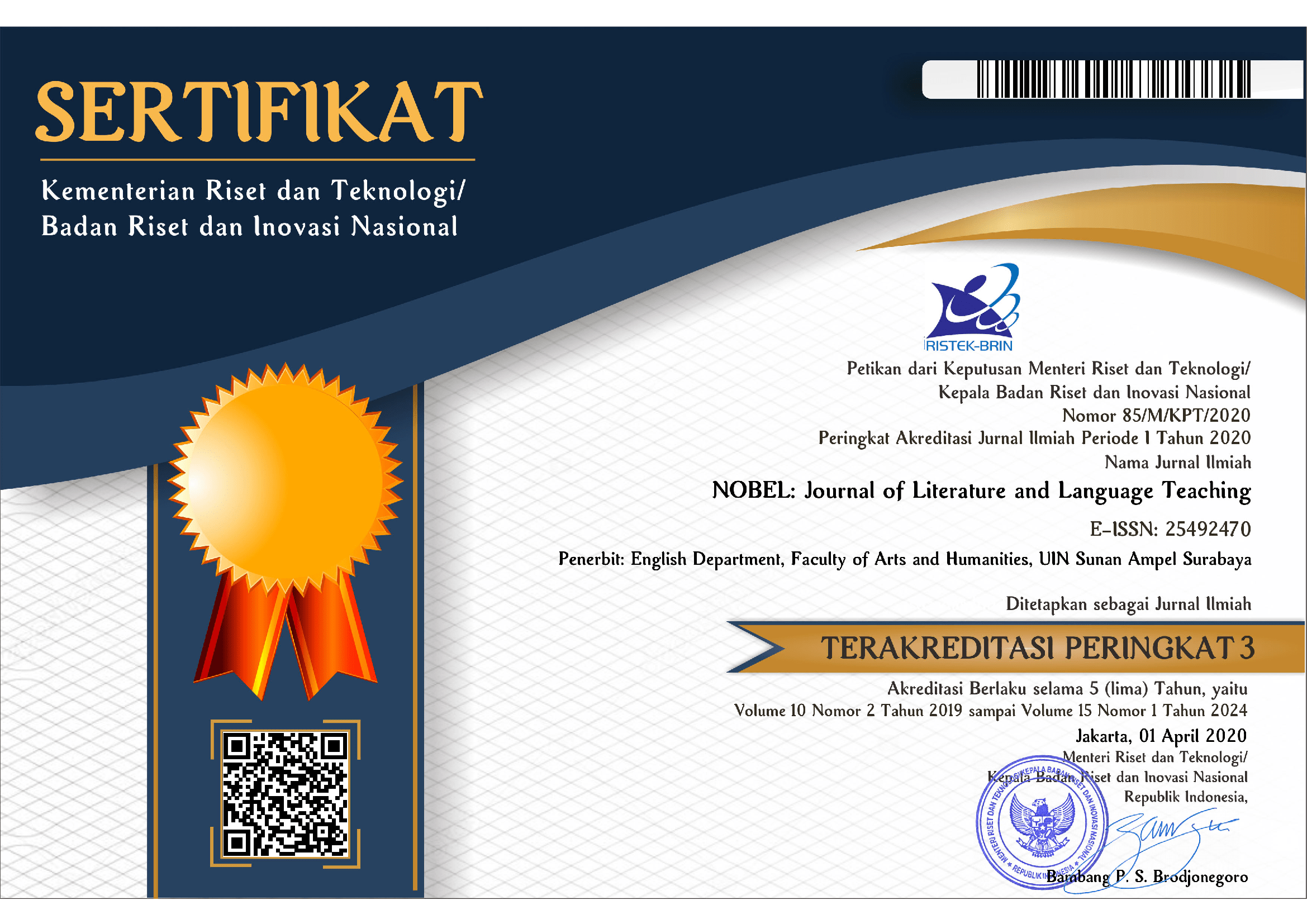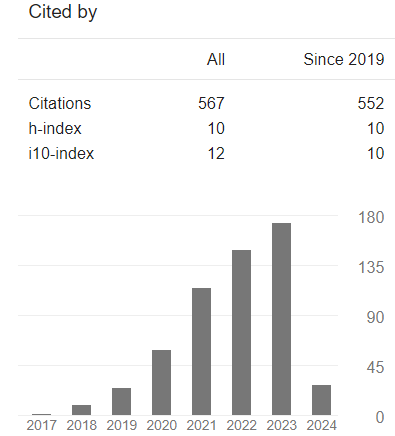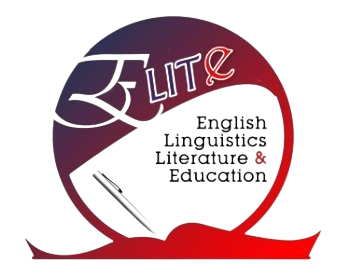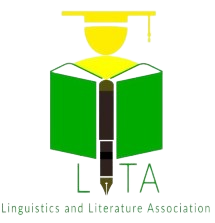The Reflected Mythological Patterns on Researchers' Journey through Literacy Narratives
DOI:
https://doi.org/10.15642/NOBEL.2019.10.1.15-31Keywords:
Monomyth, Mythology, Heroism, Research Journey, Literacy NarrativeAbstract
This paper aims to provide a heroism mythological reflection on the journey of researchers. This study uses the qualitative case study to obtain the comprehension of researchers' metaphor journeys through Monomyth on their research experiences. The documentary analysis is used in this qualitative study with the reflexive narrative because the reflection on experience can help the reader to gain insight into the researcher and their approach during the journey. 15 researchers' literacy narratives chosen in this study which consists of 8 published literacy narratives and 7 literacy narratives task from participants. Research itself often considered as a journey that extends the existing knowledge and also develops new knowledge of the researcher while wandering in the wilderness of knowledge. Along the way, the researchers with their literacy narratives in this study unconsciously have a similar mythical pattern story as like as the mythical heroes which Campbell (1949) term it as Monomyth pattern. The result presented in this paper may facilitate the literate improvements in which to motivate, to help the novice researcher to understand their own hero's journey and to educate them about the stages that they will experience such as their new transition of conducting their new research.
Downloads
References
Campbell, J. (1949). The hero with a thousand faces. Chicago: New World Library.
Carrim, N. M. (2012). “Who am I?â€- South african indian women managers’ struggle for identity: escaping the ubiquitous cage. Pretoria: University of Pretoria.
Creswell, J. W. (2010). Mapping the developing landscape of mixed methods research. SAGE handbook of mixed methods in social & behavioral research, 2, 45-68.
Follo, G. (2002). A hero’s journey: Young women among males in forestry education. Journal of Rural Studies , 18, 293-306.
Georgas, H., Regalado, M., & Burge, M. (2017). Choose your own adventure: The hero’s journey and the research process. Journal of Leading Transformation , 121-131.
Goldstein, L. S. (2005). Becoming a teacher as a hero’s journey: Using metaphor in preservice teacher education. Teacher Education Quarterly 32 , 7–24.
Harwell, R., Comstedt, T., & Roberts , N. (1997). A Hero’s journey: A freshman orientation challenge course program, in Deeply Rooted, Branching Out. 25th Annual AEE International Conference (pp. 81-88). New York: L-Jay Fine.
Hohaia, D. (2017). Opening the dialogue: Reflections of my PhD journey 2010-16. Learning Communities: International Journal of Learning in Social Contexts [Special Issue: Decolonising Research Practices] , 22, 38-47.
Mackenzie, N. M., & Lorraine , M. L. (2009). The research journey: A lonely planet approach. Issues in Educational Research , 19(1).
McCotter, S. S. (2001). The journey of a beginning researcher. The qualitative report.
McCulloch, A. (2013). The quest for the PhD: a better metaphor for doctoral education. International Journal for Researcher Development, 4, 55-66.
Merriam, S. B. (2009). Qualitative research in practice: Examples for discussion and analysis. Jossey-Bass.
Murphy, N. A., & Wibberley, C. (2016). Development of an academic identity through PhD supervision- an issue for debate. Nurse Education in Practice .
Propp, V. (1979). Morfology of the folktale. Seventh Paperback Printing.
Randles, C. (2012). The “Hero's journeyâ€: A way of viewing music teacher socialization. Journal of Music Teacher Education, , 22(1), 11-19.
Retnaningdyah, P. (2015). ‘We have voices, too’: Literacy, alternative modernities and indonesian domestic workers in Hong Kong. Melbourne: The University of Melbourne.
Seary, K., & Willans, J. (2004). It's more than just academic essays and rules of mathematics: Travelling the road with heroes on the STEPS journey as they convert the milestones of their learning journey into signposts for their future . Australian Journal of Adult Learning , 44(3), 306-326.
Trafford, V., & Leshem, S. (2009). Doctorateness as a threshold concept. Innovations in Education and Teaching International , 46 (3), 305–316.
Vogler, C. (2007). The Writers journey: Mythic structure for writers, 3rd Edition. Studio City,: CA: Michael Wiese Productions.
Wellington, J. J. (2010). Making supervision work for you: a student guide. London: Sage.
Wilson, S. (2008). Research is ceremony: Indigenous research methods. Black Point, N.S.: Fernwood.







